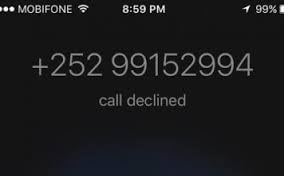Warning about losing money on calls with foreign numbers
Recently, there has been a rise in the number of calls with foreign prefixes to domestic subscribers. When the subscriber picks up or calls back, a large amount of money is immediately deducted from the account.
A typical case is Mr. Tran Anh D on Dinh Cong Street. On the night of November 14, while he was sleeping, he received a missed call with the number +0124. Thinking it was a call from a family member abroad, on the morning of November 15, Mr. D called back. The phone on the other end rang but no one picked up.
I thought that was it, but surprisingly, just a moment later, the network operator texted that his account had been deducted 820,000 VND. Too surprised by the amount, he called the operator again to ask and found out that the number above was calling from the US. The above amount cannot be recovered because it is the additional fee that the customer has used.
Similar to Mr. D's case, Ms. Van Thi HT in Van Chuong ward, Dong Da, Hanoi is similar. Ms. T uses a prepaid subscription, there is a promotion so she just bought a 500,000 VND scratch card to top up her subscription.
Seeing a call with many numbers, Ms. T picked up the phone to answer. The other end of the line said a few sentences in a foreign language that Ms. T could not understand clearly. When she asked again, she found that the sound was pre-set so Ms. T hung up. Checking her account, Ms. T was shocked to see that all the money she had just deposited had "disappeared".
 |
The Department of High-Tech Crime Prevention (C50) said that it is quite common for mobile subscribers in Vietnam to incur international call charges to foreign numbers such as +224xxx, +252xxx, +232xxx, +231xxx...
This is a method to defraud international telecommunications charges by using foreign subscribers to “beep” (beep) to a series of subscribers in Vietnam. Customers who answer the phone will lose money. If they see a missed call, they will also lose money by calling back.
Colonel Tran Van Doanh, Deputy Director of Department C50, said that the subjects often use VoIP calls (calls over the Internet) to connect with domestic subscribers for the purpose of defrauding and appropriating phone bills. In particular, the subjects can change the virtual phone number to look like a domestic call, making customers lose their vigilance.
Therefore, when receiving a missed call from an unknown number, especially one with an international prefix, customers should absolutely not call back.
In addition, to avoid any risk of unintentionally losing phone bills, even for domestic numbers, when users decide to call back a missed call that is not in their contacts, if they notice anything unusual, they should hang up and not follow the instructions to dial the internal number or the extension number inviting them to use value-added services...
According to CAND
